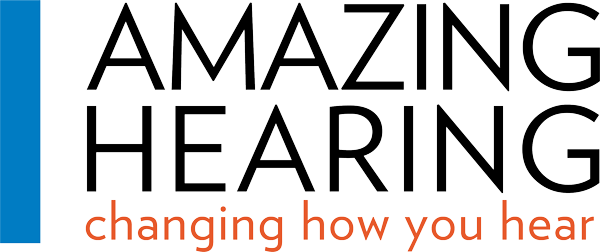What’s The Link Between Hearing and the Brain?
Hearing and the brain are closely interconnected. Not only does your brain help you process sounds, but some research has indicated that hearing loss can change how your brain functions.
How Your Brain Helps You Hear
Sound is first perceived by the ear, where it travels from the outer ear through the middle and into the inner ear. There, the vibration from the sound stimulates hair cells in the inner ear, which then send electrical signals to the auditory nerve, which is connected to the auditory center of the brain. The brain is able to translate these impulses into recognizable sounds.
Your brain also makes it easier to discriminate between different sounds and focus on the sounds you want to hear while working to filter out distracting background noise.
Can Hearing Loss Change Your Brain?
A lot of research has been done to examine the effects that hearing loss can have on the brain. The National Library of Medicine states, “There is ample evidence linking hearing loss to changes in cognitive ability, particularly when listeners are faced with the task of understanding speech that is acoustically or linguistically challenging.”
Researchers are still trying to understand the exact mechanisms behind the connection between hearing loss and the brain. However, some theories have emerged to explain the connection.
- Lack of brain stimulation. When you start to lose the ability to hear certain sounds, the parts of your brain that process these sounds stop receiving adequate stimulation. Over time, this lack of stimulation could cause changes in the brain. Imaging has shown that hearing loss may lead to a “faster rate of atrophy in the brain,” which could lead to cognitive decline.
- Isolation. Many people with hearing loss start socially isolating themselves. This is because interacting with others often becomes too difficult and stressful. Isolation also deprives the brain of stimulation and has been known to accelerate cognitive decline and dementia.
This is AI Generated
The importance of the brain and ear connection
The ear and the brain work together as a complex team to allow us to hear and make sense of the world around us.
Here's how the ear and brain work together and why it's important:
Sound Perception:
- The outer ear captures sound waves and sends them into the ear canal.
- These sound waves cause the eardrum to vibrate.
- The vibrations are then amplified by the malleus, incus, and stapes, the three small bones in the middle ear.
- These amplified vibrations are transferred to the cochlea, a fluid-filled structure in the inner ear.
- Tiny hair cells within the cochlea convert these mechanical vibrations into electrical signals.
- The auditory nerve then carries these electrical signals to the brain.
Brain’s Role in Interpretation:
- The brain receives these signals and translates them into understandable sounds.
- The brain processes different sound frequencies in different areas of the auditory cortex, creating a sound map.
The brain also plays a crucial role in:
- Spatial Awareness: By comparing signals from both ears, the brain determines a sound’s direction and location, which is essential for navigating the environment.
- Discriminating Sounds: The brain can distinguish between different sounds and filter out background noise, allowing focus on what is desired.
- Language Processing: Specific areas of the brain decode and process language and music signals.
The Importance of this Connection
- Understanding the World: The combined efforts of the ears and brain allow understanding of speech, appreciation of music, and awareness of surroundings.
- Cognitive Function: Hearing plays a vital role in maintaining cognitive abilities. Research links untreated hearing loss to a higher risk of cognitive decline and dementia.
- Social Connection: Effective hearing enables meaningful communication and social interaction, which are crucial for mental well-being and brain health.
Potential Impacts of Hearing Loss on the Brain
- Reduced Brain Stimulation: Hearing loss can lead to less stimulation of the auditory cortex, potentially causing it to reorganize or even shrink.
- Increased Cognitive Load: The brain must work harder to process incomplete auditory information and fill in the gaps, diverting resources from other cognitive functions like memory and thinking.
- Social Isolation: Difficulty in understanding conversations and participating in social situations can lead to isolation, which is associated with cognitive decline.
- Faster Brain Atrophy: Studies link untreated hearing loss to a faster rate of brain tissue loss.
Treating Hearing Loss Can Help Brain Health
Addressing hearing loss with hearing aids can help restore proper sound input to the brain, stimulate the auditory pathways, and reduce the cognitive burden associated with untreated hearing loss. This, in turn, can help maintain cognitive function, reduce mental fatigue, encourage social engagement, and potentially lower the risk of cognitive decline and dementia.
Can Hearing Aids Help?
While having hearing loss does not mean that you will develop cognitive issues, what this research does highlight is the importance of treating hearing loss to your overall health. The first step is to schedule a hearing test with one of our audiologist. If the results indicate that you have hearing loss, you and the audiologist will discuss your treatment options and the most common of which is hearing aids.
Hearing aids can make it easier for your brain to process speech and other sounds, whether at work, home or out enjoying a nice evening out with friends at the local Café. This increases brain stimulation and helps you maintain social connections that are vital to your cognitive health and overall well-being.
Amazing Hearing
There’s no reason to live with untreated hearing loss. Schedule a hearing test with Amazing Hearing, so you can get help as soon as possible. We provide comprehensive hearing health services, from tests to hearing aid fittings. Contact us today to learn more!



